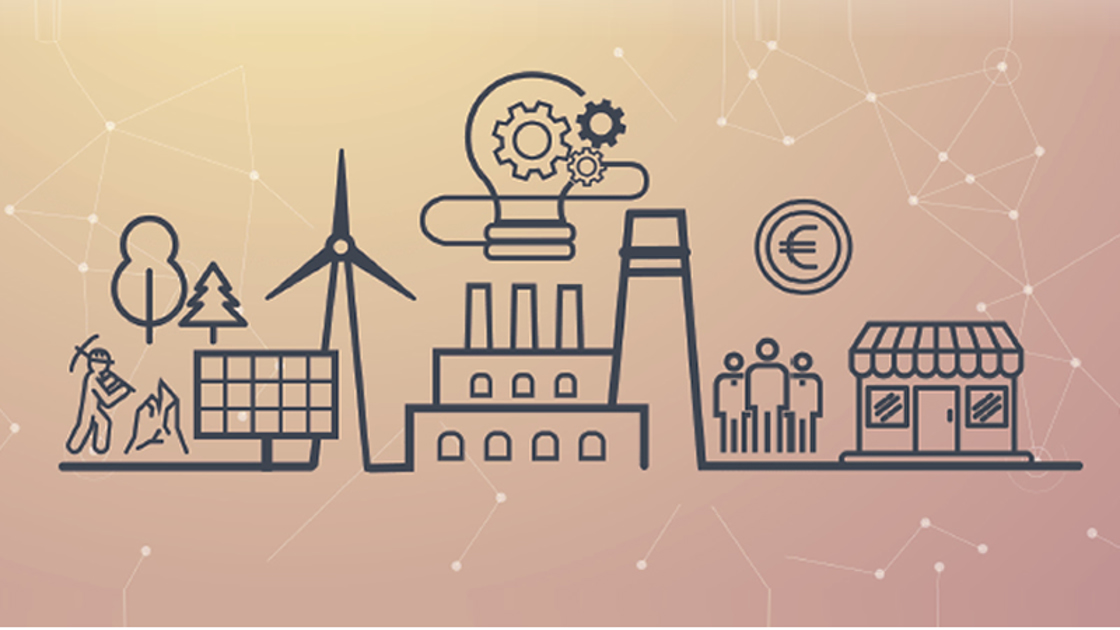On 28 November, the European Commission published a Masterplan for a competitive transformation of EU Energy Intensive Industries aimed at enabling a climate neutral, circular economy by 2050. The report makes tangible proposals to deal with major challenges the energy-intensive industries are facing in the context of deep decarbonisation. IndustriAll Europe participated in the development of the Masterplan and advocated for the mainstreaming of the social dimension in all dimensions of the plan.
IndustriAll Europe welcomes the report and underlines that it will now be crucial to take up the recommendations in the proposals for the EU Green Deal. It will also be important that the Masterplan feeds into the new long-term Industrial Strategy the Commission is currently preparing. Indeed, it will be crucial that the EU’s climate goals are underpinned with a comprehensive industrial policy framework that helps to deliver on the deep decarbonisation and ensures that energy-intensive industries stay in Europe. Moreover, we expect policy-makers and industry to support the implementation of the Masterplan with massive investment that ensures that integrated value chains and added value creation remain in the EU!
“Developing decarbonisation pathways is also about setting a completely new paradigm for the energy-intensive industries and carbon-dependent regions. A successful implementation will contribute to the long-term future of Europe’s heavy industry in a low-carbon economy, thereby safeguarding good jobs in a thriving industry”, said Luc Triangle, General Secretary of industriAll Europe.
“The Masterplan offers concrete ideas to master the transitions and deserves appropriate reflection when further determining the upcoming long-term industrial strategy and the European Green Deal. At the same time, we must ensure that EU efforts lead to strengthening value chains and the related jobs in Europe and that no worker and no region are left behind during the transition.”
The work of the ‘High-level Group Energy-Intensive Industries’
The Masterplan is the outcome of the work of the ‘High-level Group Energy-Intensive Industries’ set up by the European Commission in 2015. It involves industry associations (several of them social partners of industriAll Europe) of 11 energy-intensive sectors, as well as Member States, representatives from NGOs and trade unions. The expert group provided valuable input on the challenges of decarbonising the energy-intensive sectors in Europe while ensuring their competitiveness in Europe. It made an inventory of existing and emerging low carbon breakthrough technologies (how to replace fossil fuels in the production of steel, chemicals or cement by renewable electricity or green hydrogen). The group also analysed the possibilities to upscale the new technologies to industrial demonstration or even the commercial level. It tried to find solutions to cover the high investment and operational costs of those technologies. Moreover, the potential of new business models was discussed like increasing circularity, the further promotion of industrial symbiosis (in which the by- or waste products of one sector become feedstock for the production in another sector), the increased demand for green electricity and the development of new business models. It concluded with the demand for the right framework conditions to overcome the various challenges and with a strong call for an industrial strategy ensuring the low carbon transition.
The conclusions of the expert group were brought together in the Masterplan for the industrial transition with concrete recommendations regarding three major dimensions:
- The creation of markets for low-carbon, circular economy products looks in to how to foster the demand for low-carbon products and empower customers and consumers to buy those products. Moreover, it explores the role and potential of carbon pricing mechanisms and how they may affect global emissions and investments in the EU.
- Developing climate neutral solutions and financing their uptake discusses the development of demonstrators for key breakthrough technologies by 2030. It calls for the establishment of major R&D&I programmes with a focus on bringing solutions closer to the market. It also makes a case for facilitating access to private capital at affordable cost, including through de-risking instruments (such as loan guarantees, blending loans with grants).
- Access to resources and deployment discusses how to ensure access and availability of climate neutral energy at competitive prices and how to ensure access to alternative renewable and recyclable feedstock. In addition, it calls for the timely development of the adequate infrastructure to facilitate this access.
- Massive investment that ensures that integrated value chains and added value creation remain in the EU
- Anticipating skills needs and organising timely re- and upskilling of workers
- Labour market policies that provide for a solution for every worker affected by the transition
- Defining a new future for today’s carbon-dependent regions based on redevelopment plans
- Strong social dialogue to ensure that workers are fully informed and can participate in the change.
The Masterplan is available here.
For more information or further comment please contact senior policy adviser Corinna Zierold.
